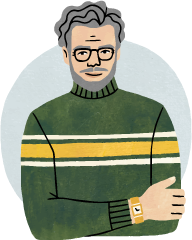Treatment Centers in 94609

Veterans Proven Psychological Treatment
Treatment Center
Not Verified Not Verified
Oakland, CA 94609
Veterans Semi-Private and Private Studios. Private Treatment Offices for Maximum Safety, Privacy, and Wellness. Premier Veterans Psychiatric Treatment Program treating Veteran-specific issues, as well as broad spectrum of psychological disorders. Does your life feel hopeless? Are your days a string of emotional/mental pain and suffering - unbearable without any joy or fulfillment? You are not alone. You can find successful and lasting healing. We want to help you. We are a Veterans exclusive, safe, and tranquil psychiatric treatment facility located steps from the ocean in Pacific Beach. Our experienced, impassioned, and professional team of mental illness treatment experts can help you find peace and stability in your life. Our Vets find the joy that's been missing from their lives. Please don't continue to suffer - get the help and care you need and deserve in a safe, confidential, and highly supportive environment. Call now to start healing. 844.600.9747 JCAHO accredited at the highest level. Consistently in the 'Top Rated' treatment programs. We are exclusively a Psychological Treatment Program - not a 'drug rehab'. Fully contracted with the VA (TriWest)
Veterans Semi-Private and Private Studios. Private Treatment Offices for Maximum Safety, Privacy, and Wellness. Premier Veterans Psychiatric Treatment Program treating Veteran-specific issues, as well as broad spectrum of psychological disorders. Does your life feel hopeless? Are your days a string of emotional/mental pain and suffering - unbearable without any joy or fulfillment? You are not alone. You can find successful and lasting healing. We want to help you. We are a Veterans exclusive, safe, and tranquil psychiatric treatment facility located steps from the ocean in Pacific Beach. Our experienced, impassioned, and professional team of mental illness treatment experts can help you find peace and stability in your life. Our Vets find the joy that's been missing from their lives. Please don't continue to suffer - get the help and care you need and deserve in a safe, confidential, and highly supportive environment. Call now to start healing. 844.600.9747 JCAHO accredited at the highest level. Consistently in the 'Top Rated' treatment programs. We are exclusively a Psychological Treatment Program - not a 'drug rehab'. Fully contracted with the VA (TriWest)
See more therapy options for 94609
FAQs - About Treatment Centers and Rehab
How can I find a treatment center in 94609?
The Psychology Today Directory has customizable search options that show potential treatment centers tailored to your location, including inpatient or outpatient, the types of insurance accepted, and even the programs the center specializes in. Finding the right treatment center can be vitally important, and the dropdown filters make it easier to find the best fit for you or your loved one.
How do treatment centers work?
There are treatment centers for individuals dealing with psychiatric issues as well as for those dealing with substance use or addiction, or who are dealing with both, also known as co-occurring disorders. The type of program that is right for an individual depends on their medical and mental health history, the severity of the issues they are dealing with, as well as their treatment goals. Individuals using the directory can filter to find a center best-suited to them based on their gender, the issues they are facing, such as addiction or a mental health condition, or the type of treatments they are seeking.
What is the difference between inpatient and outpatient treatments?
In an inpatient or residential treatment program, individuals receive treatment while living in a facility and have 24/7 access to care by medical professionals. There are various forms of outpatient treatment that offer different levels of care, including Intensive Outpatient Programs (IOPs) and Partial Hospitalization Programs (PHPs). PHPs tend to offer more time-intensive, supervised care than IOPs. Aftercare is another option that offers ongoing treatment for an individual recovering from substance use or addiction after they have achieved initial sobriety, which can take the form of either an inpatient or outpatient program.
How long is rehab?
Short term treatment usually lasts less than 30 days, while long term programs can last 60 days, 90 days, or longer, depending on the needs and goals of the individual and the structure of the program. Individuals searching for a treatment program in the directory can filter results by duration.
How much does rehab cost?
The price of treatment varies according to the length and type of service you search for, such as detox treatment, residential treatment, or outpatient treatment, as well as location and amenities offered. Non-profit centers are typically less expensive than private centers, but may have longer wait lists. Using the filters on the Psychology Today Treatment Center Directory can help narrow down which centers accept insurance plans, and, if so, which ones.
Does insurance cover rehab?
Health insurance typically covers rehab, but the extent of coverage depends on the particular policy, the treatment provider, and the needs of the individual. Individuals are encouraged to check with their insurance providers prior to entering a treatment program. Once you have confirmed coverage, you can use the Insurance filter on the Psychology Today Treatment Center Directory to find and contact centers that accept your insurance.
How do you get someone who refuses treatment into rehab?
It is important to convey compassion and understanding toward an individual dealing with an addiction problem. If a person refuses treatment at first, it’s important for their loved ones to continue to express their concerns in a kind and respectful manner, and to periodically encourage them to get help. It can take time for someone dealing with addiction to gain the motivation to make a change. In the meantime, it can be helpful for loved ones to set boundaries with the individual and educate themselves on the many treatment options that exist in order to have more informed conversations regarding recovery.



